In the ever-evolving field of dentistry, staying ahead requires continuous learning and skill enhancement. Postgraduate education offers dentists an opportunity to delve deeper into specialized areas, refine clinical techniques, and advance their careers. This article aims to provide a comprehensive guide to postgraduate education for dentists, exploring its benefits, available pathways, and considerations for choosing the right program.
The Importance of Postgraduate Education
Postgraduate education plays a pivotal role in the professional development of dentists. It offers them a chance to specialize in specific areas such as orthodontics, periodontology, endodontics, prosthodontics, oral and maxillofacial surgery, and more. Specialization not only enhances clinical proficiency but also opens doors to new career opportunities and higher earning potential.
Moreover, postgraduate education allows dentists to stay abreast of the latest advancements in dental technology, materials, and treatment modalities. It fosters critical thinking, research skills, and evidence-based practice, which are essential in delivering quality patient care.
Pathways to Postgraduate Education
There are various pathways dentists can pursue for postgraduate education, each tailored to different career goals and commitments. These include:
- Residency Programs
- Master’s Programs
- Fellowship Programs
- Continuing Education Courses
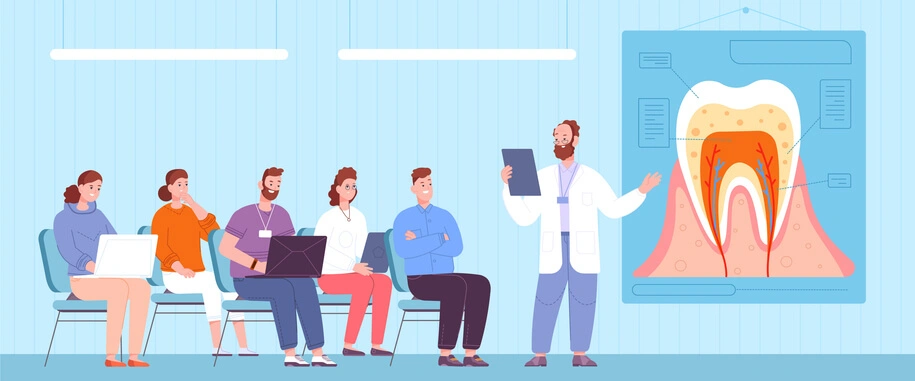
Residency Programs
Residency programs in dentistry are specialized training programs designed to provide dentists with intensive, hands-on experience in a particular specialty or subspecialty. These programs typically span 1 to 3 years, depending on the specialty, and offer a structured curriculum that combines clinical rotations, didactic coursework, research opportunities, and mentorship from experienced faculty members.
Here’s a deeper dive into what residency programs in dentistry entail:
- Specialty Focus
- Clinical Experience
- Didactic Education
- Research Opportunities
- Interdisciplinary Collaboration
- Board Certification
- Career Advancement
Specialty Focus
Residency programs allow dentists to specialize in areas such as orthodontics, periodontology, endodontics, prosthodontics, oral and maxillofacial surgery, pediatric dentistry, and more. Each residency program focuses on a s, providing in-depth training and expertise in that particular area of dentistry.
Clinical Experience
One of the primary components of a residency program is hands-on clinical experience. Residents work closely with attending faculty members to diagnose and treat patients, perform complex procedures, and manage challenging cases. Clinical rotations may take place in hospital settings, specialty clinics, or dental schools, providing exposure to a diverse patient population and a wide range of dental conditions.
Didactic Education
In addition to clinical training, residency programs include didactic coursework covering foundational knowledge, current research, and evidence-based practice in the chosen specialty. Residents attend lectures, seminars, and workshops to deepen their understanding of theoretical concepts, treatment planning, and case management strategies.
Research Opportunities
Many residency programs incorporate research into their curriculum, encouraging residents to engage in scholarly activities and contribute to the advancement of dental science. Residents may participate in research projects, publish papers in peer-reviewed journals, and present their findings at conferences, enhancing their critical thinking skills and preparing them for academic or research-oriented careers.
Interdisciplinary Collaboration
Residency programs often involve collaboration with other healthcare professionals, including physicians, surgeons, and allied dental specialists. This interdisciplinary approach fosters teamwork, communication, and holistic patient care, as residents learn to coordinate treatment plans and manage complex cases in collaboration with other specialists.
Board Certification
Upon completion of a residency program, dentists may be eligible to pursue board certification in their chosen specialty through recognized certifying bodies such as the American Board of Orthodontics, American Board of Periodontology, or American Board of Prosthodontics. Board certification demonstrates a dentist’s mastery of the specialty and commitment to excellence in patient care.
Career Advancement
Graduating from a residency program enhances dentists’ clinical skills, knowledge, and credibility within their specialty. It opens doors to various career opportunities, including private practice ownership, academic positions, research roles, and leadership positions within dental organizations. Residency-trained dentists are often sought after for their specialized expertise and ability to handle complex cases.
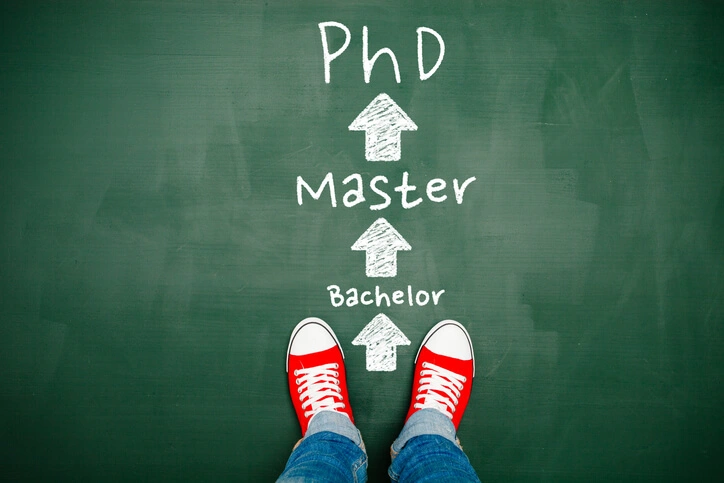
Master’s Programs
Master’s programs in dentistry offer dentists an opportunity to pursue advanced education and specialization beyond the undergraduate level. These programs typically span two to three years and are designed to provide a comprehensive academic experience that combines coursework, research, and clinical training. Here’s a detailed overview of what master’s programs in dentistry entail:
- Specialization
- Didactic Coursework
- Research Component
- Clinical Training
- Interdisciplinary Collaboration
- Professional Development
Specialization
Master’s programs allow dentists to specialize in specific areas of dentistry, such as orthodontics, periodontology, endodontics, prosthodontics, oral and maxillofacial surgery, or dental public health. Each program focuses on a particular specialty, providing in-depth training and expertise in that field.
Didactic Coursework
Master’s programs include a structured curriculum of didactic coursework covering foundational knowledge, current research, and advanced techniques relevant to the chosen specialty. Courses may include subjects such as oral biology, dental anatomy, pathophysiology, pharmacology, biomechanics, and advanced clinical techniques. The coursework is typically delivered through lectures, seminars, workshops, and online modules, providing a comprehensive understanding of theoretical concepts and evidence-based practice.
Research Component
Research is a fundamental component of master’s programs in dentistry, as it allows students to contribute to the advancement of dental science and evidence-based practice. Students are required to conduct original research under the supervision of faculty mentors, leading to the completion of a master’s thesis or research project. Research topics may range from basic science investigations to clinical studies and epidemiological research, depending on the focus of the program and the interests of the student.
Clinical Training
Master’s programs often include clinical training components that provide students with hands-on experience in patient care and treatment planning. Clinical rotations may take place in specialty clinics, hospital settings, or dental schools, allowing students to apply theoretical knowledge in real-world clinical scenarios. Students work closely with faculty mentors to diagnose and treat patients, perform complex procedures, and manage cases under supervision, gaining proficiency in their chosen specialty.
Interdisciplinary Collaboration
Master’s programs encourage interdisciplinary collaboration and teamwork among students and faculty members from different dental specialties and healthcare professions. This collaborative approach fosters a multidisciplinary perspective on patient care, as students learn to collaborate with other specialists to develop comprehensive treatment plans and manage complex cases effectively.
Professional Development
Master’s programs provide opportunities for professional development and career advancement, preparing students for leadership roles, academic positions, research careers, and specialized clinical practice. Graduates of master’s programs are equipped with the skills, knowledge, and credentials needed to excel in their chosen specialty and contribute to the dental profession through clinical practice, research, teaching, and advocacy.
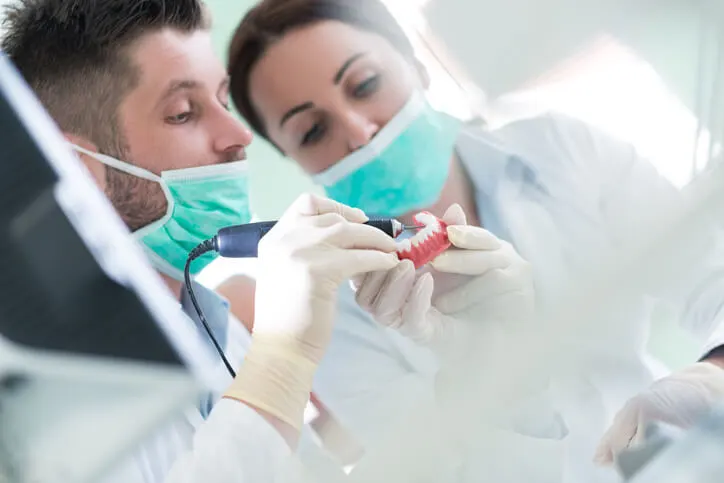
Fellowship Programs
Fellowship programs in dentistry provide advanced training opportunities for dentists who wish to further specialize in a specific niche area or subspecialty within their field. These programs are typically shorter in duration compared to residency or master’s programs, ranging from a few months to one or two years. Fellowship programs focus on honing specific clinical skills, gaining expertise in emerging technologies or treatments, or conducting focused research in a particular area of interest. Here’s a more detailed explanation of what fellowship programs in dentistry entail:
- Specialization
- Clinical Training
- Didactic Education
- Research Opportunities
- Networking and Mentorship
- Continuing Education
Specialization
Fellowship programs allow dentists to specialize further within their chosen field or to gain expertise in a specific area of interest. Common fellowship specialties in dentistry include implantology, cosmetic dentistry, oral and maxillofacial surgery, dental sleep medicine, temporomandibular joint disorders (TMJ), orofacial pain management, dental public health, and more. These programs provide focused training and mentorship in the chosen specialty, enabling dentists to develop advanced skills and knowledge in that area.
Clinical Training
Fellowship programs often include a significant clinical training component, providing dentists with hands-on experience in patient care, treatment planning, and procedural techniques specific to the chosen specialty. Fellows work closely with experienced faculty mentors to diagnose and treat patients, perform advanced procedures, and manage complex cases under supervision. Clinical rotations may take place in specialty clinics, hospital settings, or private practices, depending on the focus of the fellowship program.
Didactic Education
In addition to clinical training, fellowship programs may include didactic coursework covering relevant topics, research methodologies, and emerging trends in the chosen specialty. Didactic components of fellowship programs aim to deepen fellows’ understanding of theoretical concepts, evidence-based practice, and clinical guidelines relevant to their area of specialization. Lectures, seminars, case discussions, and journal clubs are common educational formats used to supplement clinical training in fellowship programs.
Research Opportunities
Some fellowship programs incorporate research into their curriculum, allowing fellows to engage in scholarly activities and contribute to the advancement of dental science. Research opportunities may include conducting clinical studies, participating in research projects, or collaborating with faculty mentors on ongoing research initiatives. Fellows may have the opportunity to present their findings at conferences, publish papers in peer-reviewed journals, or contribute to clinical practice guidelines within their specialty.
Networking and Mentorship
Fellowship programs provide opportunities for networking and mentorship, allowing fellows to connect with experts and leaders in their chosen specialty. Mentorship from experienced faculty members and peers can provide valuable guidance, support, and professional development opportunities. Networking with other fellows, alumni, and industry professionals can also lead to collaboration, career advancement, and future job opportunities within the dental community.
Continuing Education
Fellowship programs serve as a form of continuing education for dentists seeking to expand their knowledge and skills beyond the scope of their initial training. By focusing on a specific area of interest or subspecialty, fellowship programs enable dentists to stay abreast of advancements in the field, adopt new techniques or technologies, and enhance their clinical practice in a targeted manner.

Continuing Education Courses
Continuing Education (CE) courses in dentistry are short-term educational programs designed to provide dentists with opportunities to update their knowledge, refine their clinical skills, and stay abreast of advancements in the field. These courses cover a wide range of topics, techniques, and technologies relevant to dental practice, catering to dentists at various stages of their careers and with diverse interests. Here’s a more detailed explanation of what continuing education courses in dentistry entail:
- Flexibility and Accessibility
- Wide Range of Topics
- Expert Faculty
- Interactive Learning
- Evidence-Based Practice
- Professional Development
Flexibility and Accessibility
One of the key features of continuing education courses is their flexibility and accessibility. These courses are typically offered in a variety of formats, including live lectures, seminars, workshops, online modules, webinars, and hands-on training sessions. Dentists can choose courses that fit their schedules, preferences, and learning styles, allowing them to pursue education while maintaining their clinical practice.
Wide Range of Topics
Continuing education courses cover a diverse range of topics and specialties within dentistry, addressing emerging trends, evidence-based practices, and clinical guidelines across various dental disciplines. Common topics include implant dentistry, cosmetic dentistry, restorative dentistry, endodontics, periodontics, orthodontics, oral surgery, dental anesthesia, pediatric dentistry, oral pathology, dental radiology, practice management, ethics and jurisprudence, infection control, and more. Dentists can select courses that align with their professional interests, career goals, and areas of clinical practice.
Expert Faculty
Continuing education courses are typically taught by experienced faculty members who are experts in their respective fields. These faculty members may include renowned clinicians, researchers, educators, and industry professionals with specialized knowledge and practical experience in the subject matter. Learning from expert faculty allows dentists to benefit from their insights, clinical pearls, best practices, and real-world case studies, enhancing the quality of their education and clinical practice.
Interactive Learning
Many continuing education courses incorporate interactive learning activities such as case discussions, hands-on workshops, clinical simulations, and live patient demonstrations. These interactive components provide dentists with opportunities to apply theoretical knowledge, practice clinical skills, and receive feedback from instructors and peers in a supportive learning environment. Hands-on training sessions may involve using advanced dental materials, instruments, and equipment under the guidance of experienced faculty members, helping dentists gain confidence and proficiency in new techniques or procedures.
Evidence-Based Practice
Continuing education courses emphasize evidence-based practice, ensuring that dentists receive up-to-date information, research findings, and clinical guidelines relevant to their practice. Course content is based on the latest scientific evidence, peer-reviewed literature, and expert consensus statements, providing dentists with reliable and accurate information to inform their clinical decision-making and patient care.
Professional Development
Continuing education courses contribute to the ongoing professional development of dentists by providing opportunities for skill enhancement, career advancement, and personal growth. Completing CE courses allows dentists to earn continuing education credits or units required for license renewal, board certification, or professional accreditation. Moreover, staying current with the latest advancements in dentistry enhances dentists’ professional credibility, patient trust, and job satisfaction, ultimately benefiting both their practices and the patients they serve.
Choosing the Right Program
Selecting the right postgraduate program is a critical decision that requires careful consideration of several factors:
- Career Goals
- Accreditation
- Faculty Expertise
- Curriculum
- Resources and Facilities
- Alumni Success
Career Goals
Dentists should align their postgraduate education with their long-term career goals. Whether aiming for clinical specialization, academic research, or leadership roles, choosing a program that aligns with these objectives is essential.
Accreditation
Ensure that the program is accredited by recognized dental organizations or accrediting bodies. Accreditation ensures that the program meets established standards of quality and provides valuable training experiences.
Faculty Expertise
Evaluate the expertise and qualifications of the program’s faculty members. Experienced and renowned faculty can provide mentorship, guidance, and networking opportunities essential for professional growth.
Curriculum
Review the curriculum to ensure it covers relevant topics, clinical experiences, and research opportunities in the chosen specialty. A well-rounded curriculum should balance didactic coursework with hands-on clinical training.
Resources and Facilities
Consider the resources and facilities available to students, including access to state-of-the-art equipment, research labs, and clinical facilities. These resources can significantly impact the quality of training and learning experiences.
Alumni Success
Research the success of alumni from the program, including their career trajectories, board certifications, and academic achievements. Alumni success can serve as a testament to the program’s effectiveness and reputation within the dental community.
Benefits of Postgraduate Education
Postgraduate education offers dentists a myriad of benefits, both personally and professionally:
- Enhanced Clinical Skills
- Career Advancement
- Higher Earning Potential
- Professional Recognition
- Personal Fulfillment
Enhanced Clinical Skills
Specialized training allows dentists to master advanced clinical techniques and procedures, improving patient outcomes and satisfaction.
Career Advancement
Specialization opens doors to various career opportunities, including private practice ownership, academic positions, research roles, and leadership positions within dental organizations.
Higher Earning Potential
Specialized dentists often command higher salaries and fees due to their expertise and the perceived value of specialized services.
Professional Recognition
Board certification and advanced degrees elevate dentists’ professional status and credibility within the dental community, leading to increased referrals and patient trust.
Personal Fulfillment
Postgraduate education provides dentists with the opportunity to pursue their passion, contribute to advancements in the field, and make a meaningful impact on patients’ lives.
Challenges and Considerations
While postgraduate education offers numerous benefits, it also presents challenges and considerations that dentists must navigate:
- Time Commitment
- Financial Investment
- Work-Life Balance
- Competitive Nature
Time Commitment
Postgraduate programs require a significant time commitment, often spanning several years of full-time study or part-time involvement alongside clinical practice.
Financial Investment
Pursuing postgraduate education entails financial investment in tuition, living expenses, and lost income during training. Dentists should carefully evaluate the return on investment and explore financial aid options.
Work-Life Balance
Balancing clinical responsibilities, academic coursework, research obligations, and personal life can be challenging during postgraduate training. Dentists must prioritize self-care and maintain a healthy work-life balance to avoid burnout.
Competitive Nature
Admission to postgraduate programs can be highly competitive, requiring strong academic credentials, clinical experience, letters of recommendation, and personal statements. Dentists should prepare diligently and apply to multiple programs to increase their chances of acceptance.
Conclusion
Postgraduate education is a transformative journey that empowers dentists to excel in their chosen specialties, advance their careers, and contribute to the advancement of dental science and patient care. By carefully selecting the right program, dentists can embark on a path of lifelong learning, professional growth, and personal fulfillment in the dynamic field of dentistry.



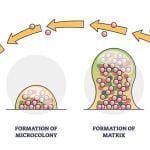
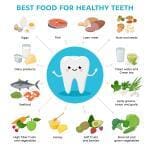

Rudolph Steuber
19 March 2024I admire your commitment to quality.